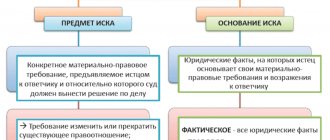What the law says
The guarantor of the rights of a minor to housing are the Constitution of the Russian Federation and the Family Code.
According to these documents, a citizen under 18 years of age has the right to live with his parents or legal representatives at their place of registration. In addition, he acquires rights to their real estate.
Legal representatives are required to register the child in their own or municipal housing at the same address where they themselves live. Monitoring compliance with this provision of the Civil Code of the Russian Federation (Article 20) by guardianship and trusteeship authorities.
If the father and mother live and are registered at different addresses , then the child is registered at one of these addresses (we talked about whether it is possible to register and discharge a child from the apartment of one of the parents without his consent here). At the same time, the consent of all residents of the apartment where he will be registered is not necessary (Article 70 of the Housing Code of the Russian Federation).
What other conclusions arise?
In the Tax Code of the Russian Federation, in the chapter devoted to personal income tax, the same composition of relatives appears in one more place: in Art. 220 of the Tax Code states that when buying an apartment from relatives, you cannot take advantage of the property deduction for personal income tax.
It turns out that if you register not as a donation, but as a purchase of an apartment from a great-grandmother or great-grandfather, you can receive both an apartment and the right to a tax deduction.
Let us remind you that the maximum tax deduction for an apartment is 2,000,000 rubles. That is, the existing tax refund mechanism allows you to return up to 260,000 rubles from the budget.
Does the owner have the right to remove a child from his apartment?
Can the owner remove a child from the owner’s apartment? The law of the Russian Federation reserves the right of a citizen to dispose of his own property at his own discretion .
But in order to complete a transaction for the alienation of real estate, it is necessary to deregister all residents of it. There will be no problems with the removal of adult citizens.
And if a person under 18 years of age is registered in the living space , even if he lives at a different address, he will have to comply with some conditions and take additional measures.
How to discharge a minor child from the owner’s apartment? The owner has the right to discharge a minor without the consent of the guardianship authorities.
But if the court reveals facts of infringement of his rights, he can restore him in registration. Therefore, upon discharge, it is necessary to provide and take into account the following nuances :
- Any actions related to the registration of a minor are carried out jointly with parents (legal representatives) .
- The right to sign when drawing up documents for children under the age of 14 belongs to their legal representatives.
- from 14 to 18 years of age prepares documents independently, but in the presence of parents (or guardians).
- If an adult has both a father and a mother, both must give consent to deregistration.
- If a child is registered in the apartment of relatives, and the parents do not agree with his discharge, the issue is resolved through the court. This takes into account where he actually lives.
- A child under 14 years of age is deregistered only together with one of the parents.
- To deregister, you must have proof that the child will be registered at a different address. Moreover, the conditions at the new place of registration must be no worse than the previous one. For example, you cannot discharge him from a separate apartment to a communal one.
- A separate requirement may be that new housing is located in the same area as the previous one.
The reason for this requirement is that the child, when moving, has the opportunity to attend the same educational institution as before. If this rule cannot be observed, then the permission of the specialists from the guardianship authorities conducting the conversation with the minor is required.
We discussed in more detail the question of whether the owner has the right to expel others from his apartment - former spouses, children - here, and on what basis and under what conditions minors can be expelled, we consider in detail in this material.
The legislative framework
The Housing Code clearly defines the solution to the problem when there is no consent to discharge. According to Article 35 of the housing legislation (clause 1), another citizen can be forcibly removed from the registration register only by a court order.
Sometimes a person cannot register his adult son if he is the owner of part of the living space and has every right to registration on his square meters. When the property fully belongs to the parent, it is impossible to obtain consent, since contact with the legal successor is lost, his whereabouts are unknown, or there is discord in the family and there is opposition from the adult child.
In such situations, you will need to file a claim with the district or city court at your place of registration and first prepare a solid evidence base. If the child has not reached the age of majority, all actions regarding him must be coordinated with guardianship. The easiest way is when the mother provides the child with another living space and is ready to register in a new place. For example, if a child is 9 years old and lived with his mother, there will be no problem with registration if registration is carried out at the same time at the mother’s new registration address.
The main condition for forced discharge is recognition through the court of a person as a former family member, as stated in Art. 31 (part 4) Housing Code of the Russian Federation. From the point of view of housing and family law, the meaning of the concept of “family member” diverges.
Who can be discharged without consent?
In order for an adult to be recognized as a former relative, the court will take into account the following signs:
- Lack of a common household and a unified family budget.
- Citizens registered in the same living space do not help each other.
- Family members are in conflict; there are fundamental, irreconcilable differences between them.
- Citizens being evicted from an apartment do not live at the registration address and do not pay utility bills.
If the heirs present evidence in court that there are no other places to live or register, the court may provide a certain period of time to resolve the issues: 3-12 months.
Not only daughters or sons can be discharged. In the following situations, it is possible to discharge relatives and former relatives:
- after a divorce, the parents of the ex-husband remove the wife from the living space she acquired before marriage;
- relatives are listed as missing.
These options are possible when family members are capable and do not need financial support. If a person is registered, but does not live at the address, there will be litigation with the preparation of evidence about the person’s absence at the place of registration.
Who cannot be discharged
In the issue of discharge, the legal capacity and majority of citizens play a special role. Cases of minors are resolved through legal representatives, subject to the observance of their civil rights and interests.
From the point of view of housing legislation, citizens living together are recognized as family members, therefore, in order to force eviction, it will be necessary to prove that the family connection has been lost.
It is impossible to discharge a child and his guardian unless new registration and a new place of residence are organized.
Procedure
The procedure for deregistration from owned living space involves the following steps :
- Submitting an application for the discharge of a minor to the passport office or the Federal Migration Service. The application must be submitted by one of the parents or jointly. If the child is 14 years old, then he is present during the procedure; if not, the parents act independently. More information about which authorities (passport office or FMS) are currently carrying out the deregistration procedure can be found here.
- Filling out the departure form at the passport office or the Federal Migration Service (form and sample).
- Receive documents in a week.
- Registration of the child at a new address.
To obtain an extract, you must provide the parents’ passports, the child’s passport (after 14 years), the house register, and documents for the apartment.
Extract through court
In the absence of parental consent , discharge can only be carried out through the court. The most common case and reason for appeal is the termination of the rights to use the premises due to actual residence at a different address.
Frequently asked question: how can I remove a child from an apartment without his consent if I am the owner? For example, a child lives in his mother’s apartment, but is registered in his father’s own apartment , the court will most likely discharge him.
If he is registered in a privatized apartment , then this will be more difficult, because a minor citizen was registered in the apartment during privatization, and the right to be registered there remains with him. You will find more nuances about the owner’s removal of other people, including children, from a privatized apartment in this publication.
The statement of claim requires the presentation of compelling reasons for deregistration. To prove the fact that the child’s place of residence is not at the place of registration, it is necessary to collect witness statements, certificates from the school or kindergarten that he attends.
Some guarantee of receiving a positive decision on discharge may be the presence of acceptable living conditions for the family.
For example, if a child is registered in the apartment of relatives (grandparents, etc.), and the parents with whom he lives are registered at a different address, the court will definitely discharge the child.
The same result will be upon discharge from the father’s apartment, if in fact the child lives with the mother.
However, an obstacle in this case may be the deterioration of living conditions at the new address . Simply put, if it is proven in court that the discharge will lead to a change in conditions for the worse, then the decision will be negative.
There is definitely no need to go to court if the child and his mother do not own housing or have a social tenancy agreement. The court will never discharge him anywhere.
The following documents should be attached to the statement of claim for deregistration of the apartment:
- A certificate from the Housing Office or the Criminal Code stating that these persons do not live in the living space.
- Certificate of property owner.
- Permission from the guardianship authorities to deregister a minor.
If you have permission from the guardianship authorities, you can file a claim in court. The presence of a guardianship representative is also required at the court hearing .
We talk in more detail in this article about whether a new owner can discharge a minor “to nowhere” if he bought an apartment, and how children are discharged when moving.
Residence address is the registration address
One of the most frequently asked questions is “The ex-wife and children have moved out of the apartment. What address should I indicate in the statement of claim and other documents? Actual address? What if he is unknown?
According to the logic of the court, the place of residence of the defendant is considered to be the place of his registration - paragraph 63 of the Resolution of the Plenum of the Supreme Court of June 23, 2015 N25. Therefore, in the statement of claim, we indicate the address of residence of the ex-wife and children as the address of their registration - the apartment from which the owners need to deport them. The plaintiff is not required to know where the defendant actually lives.
As a result, all subpoenas to the ex-wife and children will be sent to a place where they may not actually live - Art. 113 Code of Civil Procedure of the Russian Federation. If they do not receive a summons (because they do not live there), the court will still consider that everything has been done to notify them. The law is respected here. Receiving correspondence is a citizen's responsibility. If they do not appear in court, the case will be considered without their participation - clause 4 of Art. 167 Code of Civil Procedure of the Russian Federation.
We'll help you with your checkout
Our law office "Bessonov and Partners" offers residents of Moscow or the region. We will take on all the possible work - we will draw up a correct statement of claim, collect all the necessary documents and submit them to the court. You will not need to come to court hearings; the office's lawyer will participate in them and will do everything possible to win the case. At the end of the trial, we will bring you a copy of the court decision.
We have been working in the field of court records since 2008 and have won 84% of court cases.
The cost of the service is 60 thousand rubles. For visitors to this site there is a discount from 5% to 10%. To receive it, say that you came from the website “Prozhim.com”. For all questions, please call 8 (916) 594-57-31 (daily from 9:00 to 21:00 Moscow time / only for residents of Moscow and the region).
How to obtain permission from the guardianship authorities?
To obtain permission from the guardianship and trusteeship authorities, you must write an application to the guardianship authorities at your place of residence.
Both parents must apply , except in cases where one of them has been deprived of parental rights. In addition, the presence of a child over 14 years old is mandatory.
In the application, they must name the place of new registration of the child and provide documents for it.
When submitting an application, you must provide the following documents:
- Issue a certificate of persons registered in the living space (extract from the house register).
- Parents' passports.
- Passport or birth certificate of the child.
- A registration certificate or floor plan of the premises where the child will be registered in the future.
The guardianship authorities check and evaluate the submitted documents and after 2 weeks invite all applicants for an interview.
The interview is conducted with the participation of a USZN inspector. The guardianship authorities issue permission to discharge or prohibit.
From our separate publications you can also find out whether it is possible to check out of an apartment while in another city and how to check out using a power of attorney.
Rules for filling out applications
The outcome of the case depends on whether the application to various authorities is drawn up correctly. Each of the statements has its own characteristics .
Claim in court
The application to the court is submitted at the actual place of residence of the child .
The claim must first of all be justified, therefore the application must indicate the requirements that comply with current legislation.
First of all, indicate the subject of the claim - recognition of the citizen as having lost the right to use the premises. This is what should be the subject of the lawsuit.
At the end of the application, ask the court to also recognize the minor as having lost the right to use the premises.
Discharge from the premises will occur subsequently on the basis of this decision, since the court does not discharge anyone, this will then be dealt with by the relevant authorities .
Further in the application, indicate the reasons for this decision.
We talked about how claims for forced deportation are drawn up in various situations in a separate article.
In the Federal Migration Service
An application to the Federal Migration Service is written by both parents and the child after 14 years of age. The easiest way to obtain such an extract is by registering at a new address.
In this case, citizens submit an application to the place of new registration with a request to register the minor.
Employees of the Federal Migration Service carry out registration, and deregistration from the old place of residence occurs automatically , without the participation of applicants.
To the guardianship authorities
The guardianship authorities should be contacted not with a request to discharge the child, but for permission to remove him from the registration register at the place of his previous registration.
After the request for permission , you should reasonably indicate the reasons for the discharge and be sure to indicate the new registration address . Without a substantiated description of the new registration address, it is impossible to obtain permission from the guardianship.
The guardianship authorities will not allow the child to be discharged without providing him with a place of residence.
It is necessary to attach to this application documents for the apartment and a personal statement from the owner about the desire to register a minor on his own territory.
Let's continue the explanations of the Ministry of Finance
In the situation described in the letter, the great-grandmother and great-grandson should have done the following:
- Draw up not a gift agreement, but a purchase and sale agreement. This can also be done for a minor great-grandchild. His parents would just sign the contract for him. Thus, the final goal would be achieved: the great-grandson would become the owner of the apartment, just as the great-grandmother wants.
It is important that the price of the apartment specified in the contract is from 2 million rubles. and higher. To use the entire amount of personal income tax deduction allowed under the Tax Code of the Russian Federation.
- Prepare documents confirming that the parents of the great-grandchild have paid the cost of the apartment. Need I say that relatives (although not recognized by the NK) are their own people? And how much money was actually transferred to the great-grandmother is no one’s business if, for example, there is a receipt from her for receiving the entire amount. And where the grandmother transferred the money back, for example, transferred to her account and withdrawn in cash, should also not concern anyone.
- Next, the parents of the great-grandchild can submit a property tax deduction for the apartment purchased by the child. It is quite possible for parents to receive a deduction for real estate purchased for their children.
In what cases is an extract impossible?
As noted earlier, it is impossible to discharge a minor to nowhere . The court will definitely deny you the opportunity to remove it from registration if:
- There is no permission from the guardianship authorities.
- The child is not provided with a new place of residence.
- The rights of a minor are violated by deteriorating living conditions.
Thus, the main condition for the child’s discharge is the availability of all necessary documents for the procedure. Otherwise, you will not be able to positively resolve this issue even through court.
When asking yourself the question, can I expel a child from an apartment if I am the owner, keep in mind that the expulsion procedure in each specific case has its own characteristics , therefore, to resolve the issue positively, it is advisable to seek help from lawyers.










